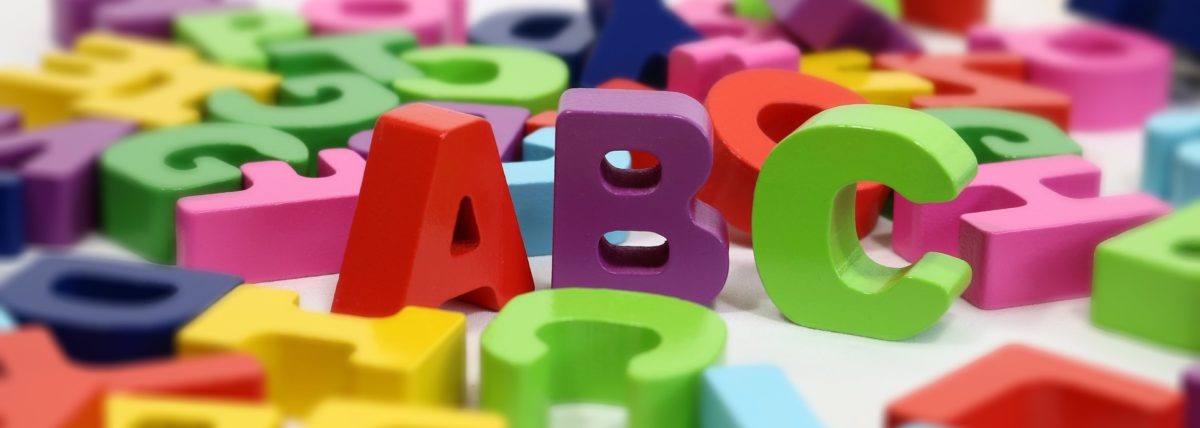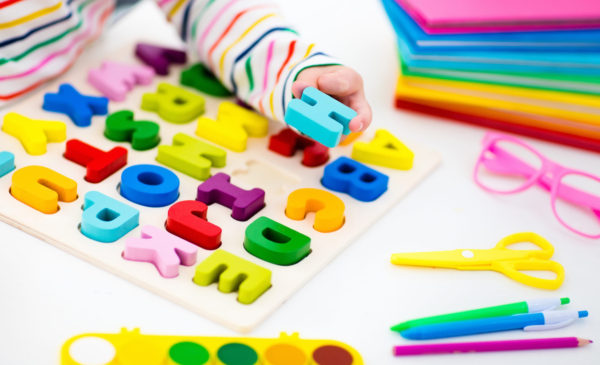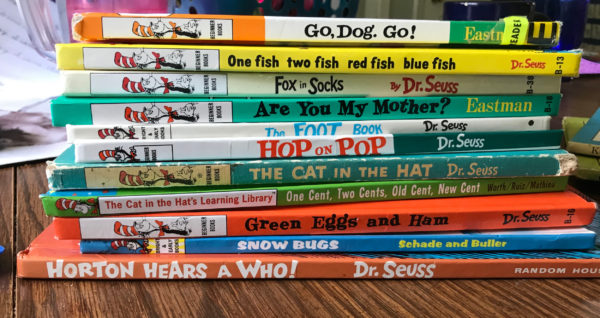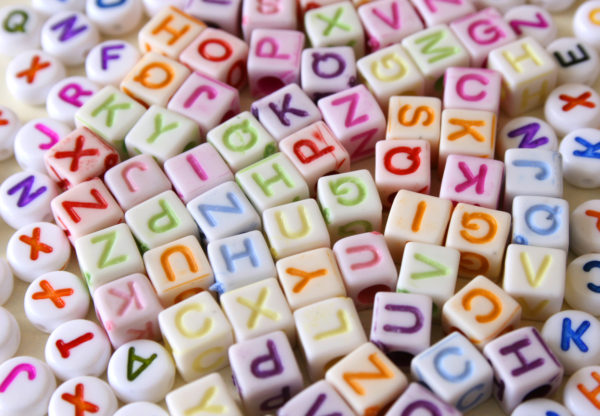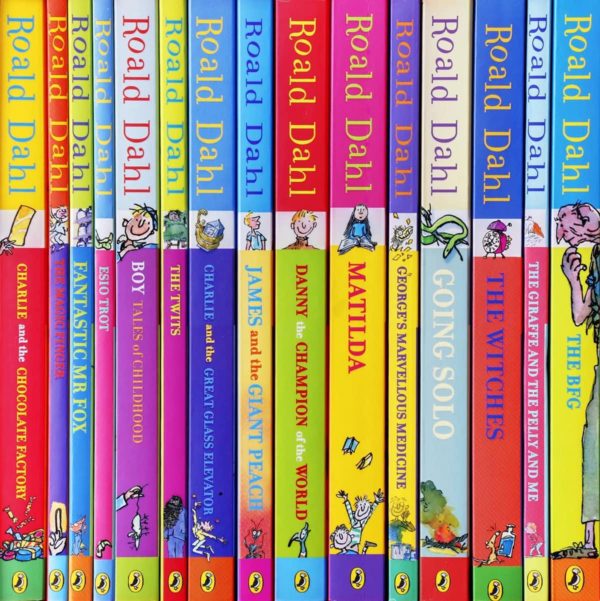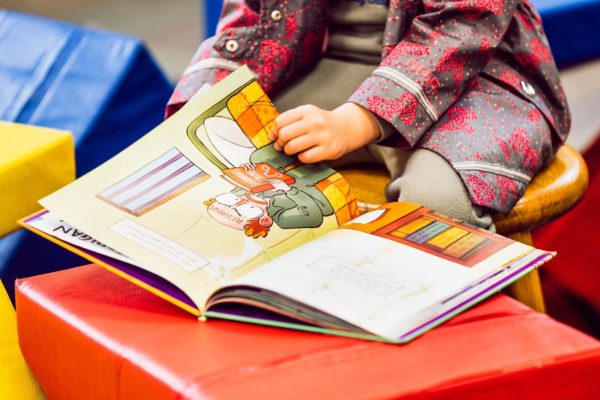Introducing Early Reading with 3 Easy Alphabet Games
Once we survive the sleepless nights and the terrible twos, it may feel like as a parent we can breathe again – that is until we have to start thinking about the next steps for our little ones. How and when are they going to learn phonics and start to read? It may seem like a daunting task for a parent but helping your children with easy phonics games at the beginning stages is easier than you think.
In many ways, early education is the easiest time to help your child to learn. The joy of teaching a young child is that there are no issues of understanding content – we all know how to read, write and how to do simple calculations. The challenge lies in how parents without teaching experience can learn to act as educators, making early reading at home a fun and interactive experience.
Children don’t always respond to parents the same way they do to teachers. The key is to make the alphabet and phonics games at home fun and enjoyable, so that children don’t see it as a continuation of school. That said, routine is key. Once it is part of the daily or weekly routine, children will be much more accepting of their time spent learning at home. Try and set aside a similar time every week where you can focus on phonics and early reading skills – after a meal or nap is always a good starting point!
Every child will be at a different level of learning, depending on whether or not they are attending nursery or preschool. Nursery schools will introduce children to basic phonics skills using fun and interactive alphabet games. Children learn letter sounds rather than names of letters at this stage. It is best to start with the most commonly used letters – most phonics programs suggest teaching “s, a, t, n, I” first but all letter recognition is important, so start where you feel comfortable.
How can I teach phonics at home?
Of course, the most important place to start is letter recognition. Here are a few simple alphabet and phonics games you can play with your child to introduce and practice basic letter sounds. These activities will reinforce the beginning stages of their phonics development:
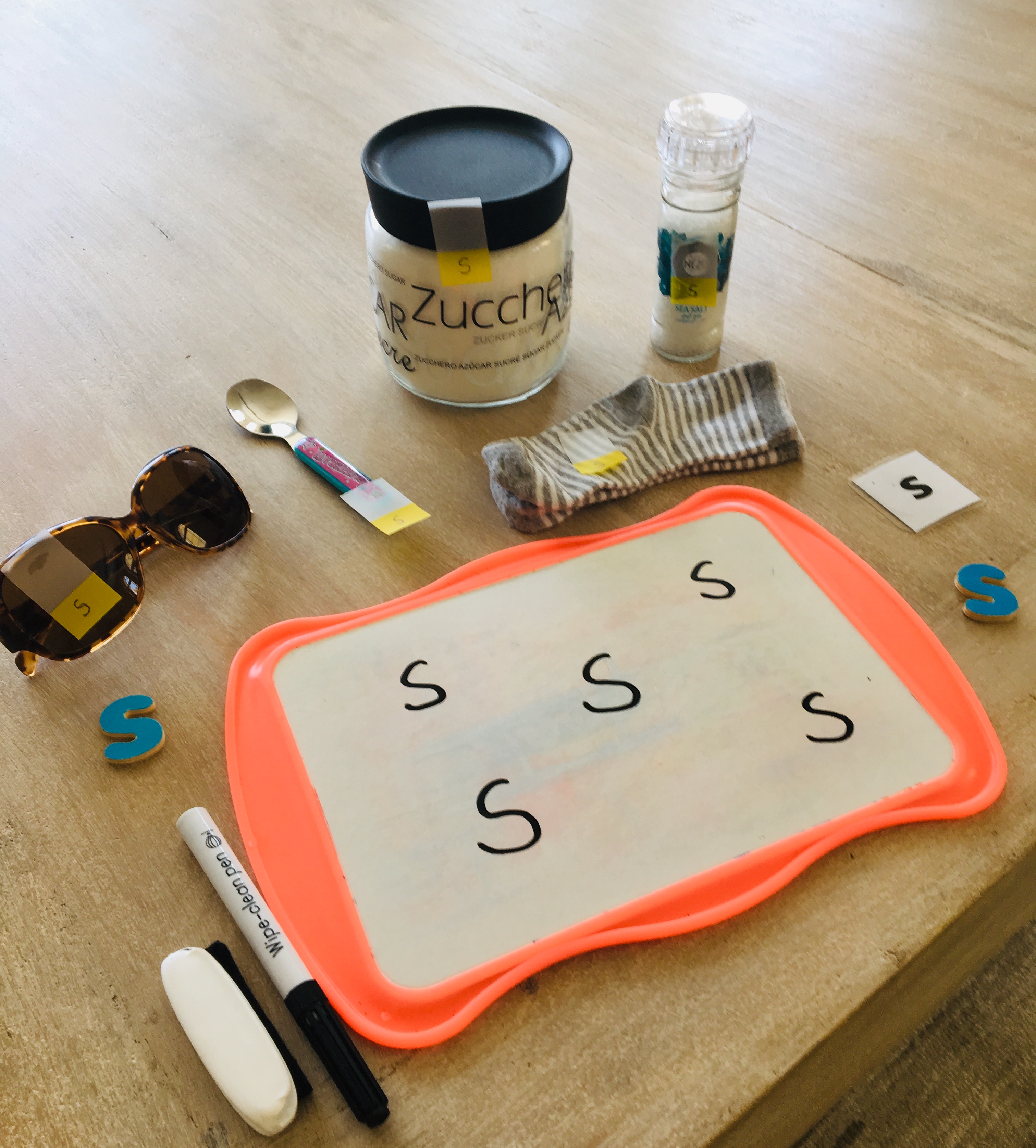 1. Initial Sounds Letter Hunt Phonics Game
1. Initial Sounds Letter Hunt Phonics Game
Choose a letter which is commonly used to start words (s, t, a, r, c) and practice writing this letter with your child until it is recognizable. If you have a whiteboard, use it! Children love to try writing their letter over and over. Once they are familiar with the letter shape and the sound it makes, write the letter 5 times on small post-it notes. Walk around your house or garden and find objects which start with that sound. When your child finds an object, they can stick on the letter label. If they are still paying attention, write the name of the object on the whiteboard and ask your child to underline or circle the initial letter sound in each word. Have fun and try a different letter each day!
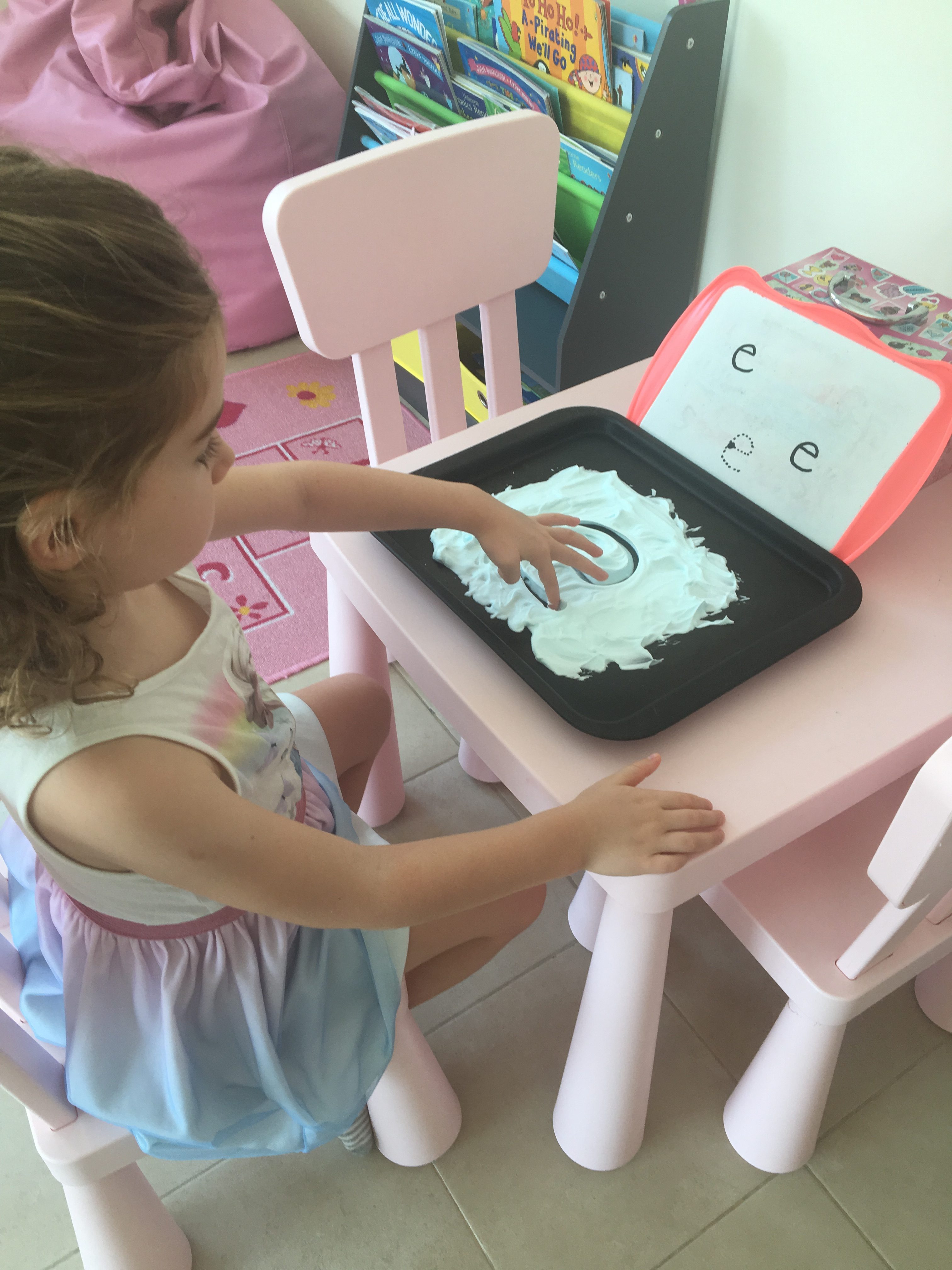
2. Shaving Foam Fun Writing
For preschoolers, fingers make the best pencil when to comes to practicing letter formation. Use a baking tray and spread a thin layer of shaving foam to cover the surface. Using a whiteboard or paper, model the formation of the target letter and leave this on display as a guide. Remember to emphasize the starting point of the letter. Children can then use their fingers to draw their target letters in the foam. Model the letter first and if necessary and guide their fingers into the correct formation until they can do it independently.
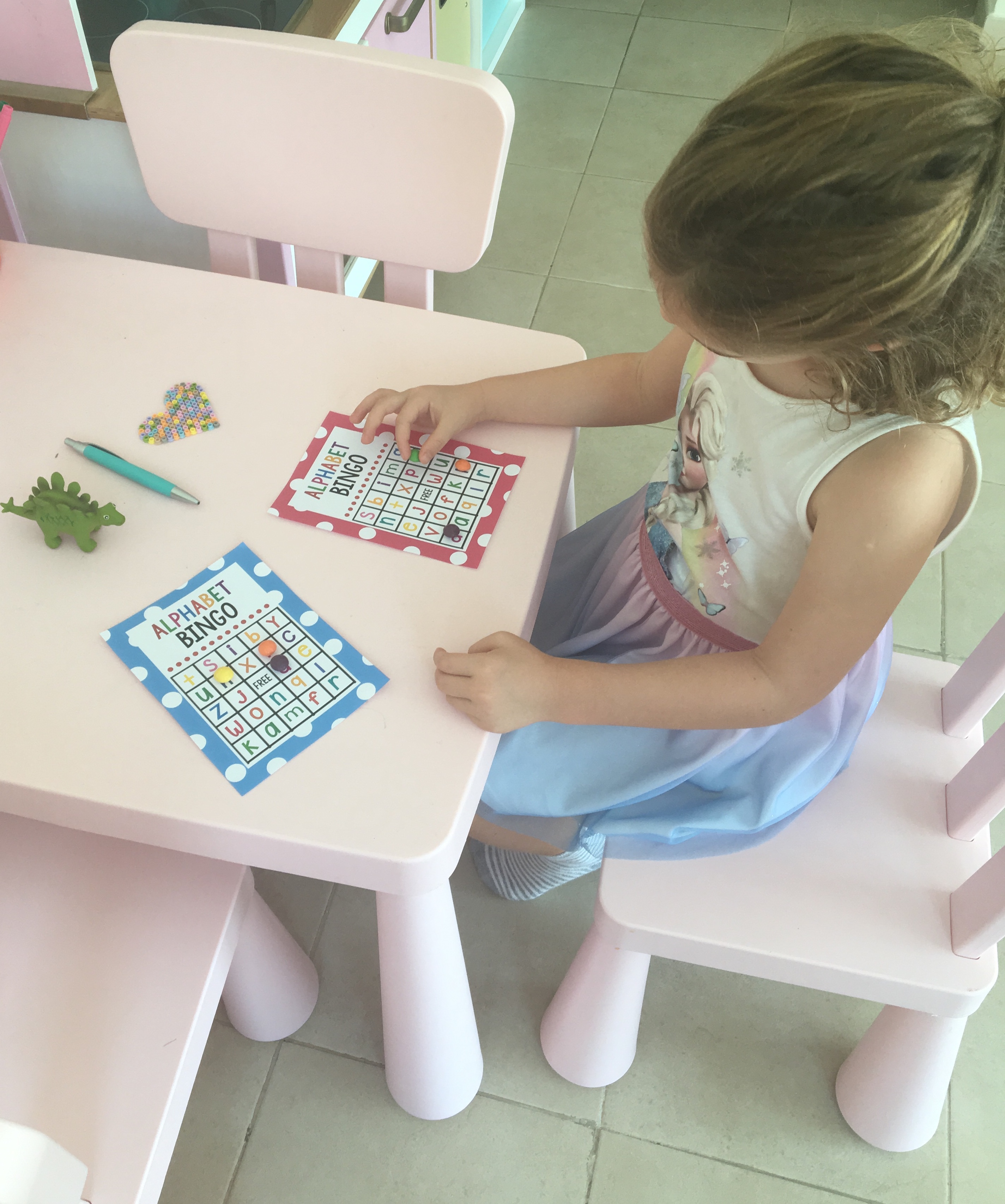
3. Phonics Fun with Initial Sounds Bingo
This fun phonics game promotes recognition of initial sounds. Create a simple grid of 5 x 5 squares and fill each square with familiar initial letters. Choose fun objects as counters – M&Ms or Skittles work well for sugar-based motivation! Say a word beginning with one of the initial letters on the grid, repeat as many times as necessary until your child can pick out the first sound. If you have an object to match the word, even better. Once they have a straight line covered, they can eat the treats! It is more fun to play games together so make yourself a game board so make small word cards which correspond to the letters which can be folded up and put into a bowl. Let your child choose the word from the bowl and compete against each other to see who wins. It’s easy to print off pre-made Bingo cards.
When it comes to early reading, there are so many opportunities for parents to become active participants in their children’s learning to read journey, it is just a matter of investing a small amount of time learning the techniques and approaches of teaching the basic skills of phonics and reading. The benefits are not only academic – not only will you see their enthusiasm for books and reading grow, at the same time you will be fostering a positive relationship with your child as you enjoy these phonics games together.
